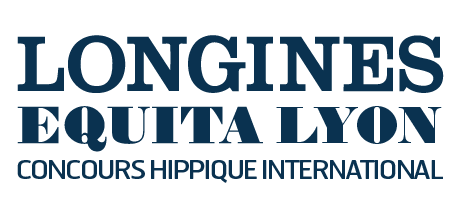© PSV.J.Morel - M.Froment
Olivier Perreau, Building a legacy through passion and dedication
The rider from Roanne will never forget 2nd August 2024! Olivier Perreau climbed onto the Paris 2024 podium, winning the team bronze show jumping medal, with Julien Epaillard and Simon Delestre, in the gardens of the Sun King, in front of a French audience. Riding GL events Dorai d'Aiguilly, the leader of the Equita Riders fulfilled his childhood dream, inspired by the passion his parents instilled in him. A passion he now shares, at thirty-nine, with his wife and three children.
A year after winning that incredible bronze medal at the Paris 2024 Olympic and Paralympic Games, the emotion is still very much alive. Who did you think about when they placed that medal around your neck?
OLIVIER PERREAU: Actually, I thought, “Why aren't we on the highest step?” (laughs). I wanted to enjoy the moment to the fullest: an Olympic podium in France, in front of French spectators, surrounded by all our loved ones, and, personally, with a mare from our stud farm, will definitely never happen again. And of course, I thought of my whole family: we all worked together to win this medal.
You grew up surrounded by horses, in your family's stables. What values did your parents pass on, that continue to guide you as a rider today?
O.P.: The importance of hard work and always respecting horses. I've seen my parents get up early, every day of the year, and work hard my whole life. But honestly, there’s nothing better than spending your life with horses. I’ve never considered work a chore; spending each day with them is both a pleasure and a privilege. They mean so much to me. I love their different personalities and their sensitive nature. I also love helping them progress to competition level, while respecting the pace and potential of each one.
Thinking back to your early competitive days, what lessons from your parents come to mind? Your father also competed.
O.P.: You know, my parents were riding instructors. They gave me a solid foundation in horse riding, ‘the old-fashioned way’, which young riders sometimes lack today. Even when I was young, I already loved competing, perhaps a bit too much (laughs). They didn’t need to push me—if anything, they had to slow me down when my horses weren’t ready for the level I envisioned. I was determined to succeed; I always wanted to jump higher and win. Looking back, I realize I was capable of entering a class that was slightly bigger than the one we had agreed on (laughs).
Today, you have children who ride. What do you want them to learn from you?
O.P.: To respect horses, just like my parents taught me. To never forget the importance of understanding their horse. They’ll realise that all the time and effort invested in them will be returned tenfold. They are still very young: Louis is 14, Cloé is 11 and Arthur is 6. Above all, my wife Émilie and I hope they enjoy developing strong, lasting bonds with their horses. If they decide to make horse riding their profession, I hope they exceed my accomplishments, and remember that respect is the foundation of our sport. I will be there to support and share my experience with them.
Will you advise them to spread their wings and gain insight from other riders?
O.P.: Yes, of course, I think that's important. It's something I wasn't able to do a lot. Louis has already gone to train with other riders such as Julien Gonin: in this sport, you learn every day, and you learn a lot by watching other people.
The sport has changed from your father’s era to yours, and it will continue to change for the next generation.
O.P.: That's true, and it's a good thing, as long as we keep respecting our horses. The sport has developed a lot over the last twenty years, new countries have opened up to horse riding, competitions are constantly evolving, and that's great. But we must stay in tune with our horses, and adjust our competition schedule according to their form and well-being. It’s tempting to compete too often, sometimes with horses that are still young or inexperienced, especially as the level of competition continues to rise; there are CSI 5* shows every weekend all over the world...So I try to find a balance between national competitions to give my up-and-coming horses more experience and top-level international competitions.
Especially since you’re very attached to training your horses, a number of which come from your own stud farm, so you’ve seen their development from the very beginning.
O.P.: Breeding is a passion that perfectly complements my competitive career. Breeding became a necessity for my family, providing the opportunity to own quality horses we might not otherwise have had. We began with the best mares we could find and gradually developed the business from there. Breeding and training our own horses allows us to develop them at our own pace, without any external pressure. We don't expect our young horses to be champions at three, four, five or six-years-old. We prefer them to be competitive later on and to have a long career.
To conclude, you recently entrusted one of your best mares, GL events Dolce Deceuninck, to your daughter. Cloé will learn a lot from her!
O.P.: Dolce means a lot to me; she has won a lot of 1.45m and 1.50m classes. She's an energetic mare who loves competing and is always enthusiastic about heading to shows. It’s reassuring to have a horse who rises to the occasion and gives her all for her rider. I didn’t want to push her too far; it was the right moment for her to retire from the highest level of competition. Rather than ending her competitive career altogether, Cloé who only began competing a few months ago, will be able to put her experience to good use. She will learn a lot from Dolce, she knows exactly what to do—and how to do it.

